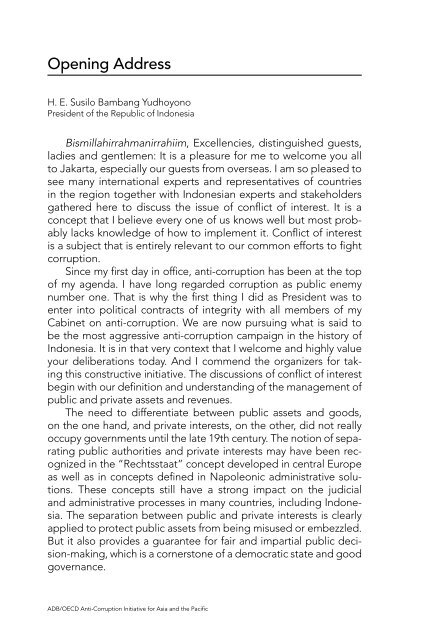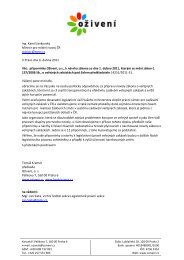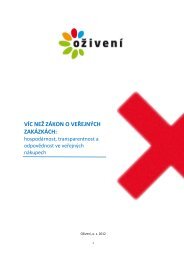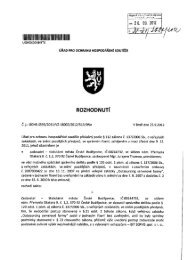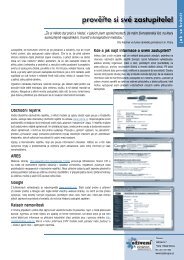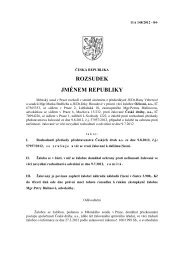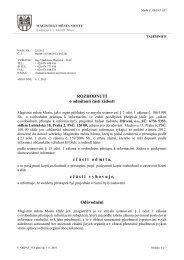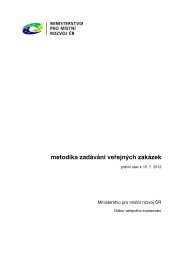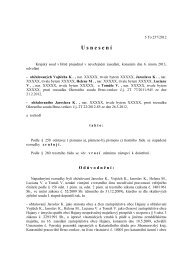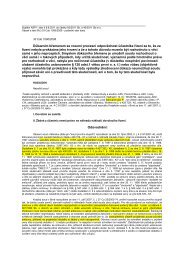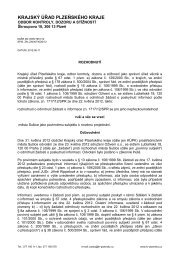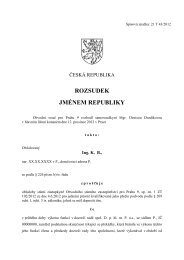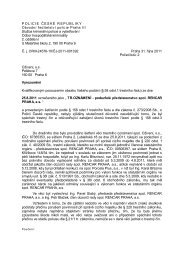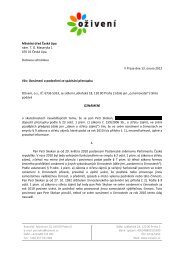Managing Conflict of Interest - Organisation for Economic Co ...
Managing Conflict of Interest - Organisation for Economic Co ...
Managing Conflict of Interest - Organisation for Economic Co ...
You also want an ePaper? Increase the reach of your titles
YUMPU automatically turns print PDFs into web optimized ePapers that Google loves.
Opening AddressH. E. Susilo Bambang YudhoyonoPresident <strong>of</strong> the Republic <strong>of</strong> IndonesiaBismillahirrahmanirrahiim, Excellencies, distinguished guests,ladies and gentlemen: It is a pleasure <strong>for</strong> me to welcome you allto Jakarta, especially our guests from overseas. I am so pleased tosee many international experts and representatives <strong>of</strong> countriesin the region together with Indonesian experts and stakeholdersgathered here to discuss the issue <strong>of</strong> conflict <strong>of</strong> interest. It is aconcept that I believe every one <strong>of</strong> us knows well but most probablylacks knowledge <strong>of</strong> how to implement it. <strong><strong>Co</strong>nflict</strong> <strong>of</strong> interestis a subject that is entirely relevant to our common ef<strong>for</strong>ts to fightcorruption.Since my first day in <strong>of</strong>fice, anti-corruption has been at the top<strong>of</strong> my agenda. I have long regarded corruption as public enemynumber one. That is why the first thing I did as President was toenter into political contracts <strong>of</strong> integrity with all members <strong>of</strong> myCabinet on anti-corruption. We are now pursuing what is said tobe the most aggressive anti-corruption campaign in the history <strong>of</strong>Indonesia. It is in that very context that I welcome and highly valueyour deliberations today. And I commend the organizers <strong>for</strong> takingthis constructive initiative. The discussions <strong>of</strong> conflict <strong>of</strong> interestbegin with our definition and understanding <strong>of</strong> the management <strong>of</strong>public and private assets and revenues.The need to differentiate between public assets and goods,on the one hand, and private interests, on the other, did not reallyoccupy governments until the late 19th century. The notion <strong>of</strong> separatingpublic authorities and private interests may have been recognizedin the “Rechtsstaat” concept developed in central Europeas well as in concepts defined in Napoleonic administrative solutions.These concepts still have a strong impact on the judicialand administrative processes in many countries, including Indonesia.The separation between public and private interests is clearlyapplied to protect public assets from being misused or embezzled.But it also provides a guarantee <strong>for</strong> fair and impartial public decision-making,which is a cornerstone <strong>of</strong> a democratic state and goodgovernance.ADB/OECD Anti-<strong>Co</strong>rruption Initiative <strong>for</strong> Asia and the Pacific


